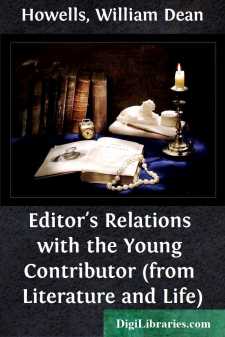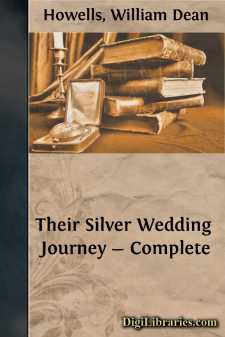Categories
- Antiques & Collectibles 13
- Architecture 36
- Art 48
- Bibles 22
- Biography & Autobiography 816
- Body, Mind & Spirit 145
- Business & Economics 28
- Children's Books 17
- Children's Fiction 14
- Computers 4
- Cooking 94
- Crafts & Hobbies 4
- Drama 346
- Education 58
- Family & Relationships 59
- Fiction 11834
- Foreign Language Study 3
- Games 19
- Gardening 17
- Health & Fitness 34
- History 1378
- House & Home 1
- Humor 147
- Juvenile Fiction 1873
- Juvenile Nonfiction 202
- Language Arts & Disciplines 89
- Law 16
- Literary Collections 686
- Literary Criticism 179
- Mathematics 13
- Medical 41
- Music 40
- Nature 179
- Non-Classifiable 1768
- Performing Arts 7
- Periodicals 1453
- Philosophy 66
- Photography 2
- Poetry 897
- Political Science 203
- Psychology 45
- Reference 154
- Religion 516
- Science 126
- Self-Help 85
- Social Science 82
- Sports & Recreation 34
- Study Aids 3
- Technology & Engineering 59
- Transportation 23
- Travel 463
- True Crime 29
Our website is made possible by displaying online advertisements to our visitors.
Please consider supporting us by disabling your ad blocker.
Editor's Relations with the Young Contributor (from Literature and Life)
Categories:
Description:
Excerpt
The new contributor who does charm can have little notion how much he charms his first reader, who is the editor. That functionary may bide his pleasure in a short, stiff note of acceptance, or he may mask his joy in a check of slender figure; but the contributor may be sure that he has missed no merit in his work, and that he has felt, perhaps far more than the public will feel, such delight as it can give.
The contributor may take the acceptance as a token that his efforts have not been neglected, and that his achievements will always be warmly welcomed; that even his failures will be leniently and reluctantly recognized as failures, and that he must persist long in failure before the friend he has made will finally forsake him.
I do not wish to paint the situation wholly rose color; the editor will have his moods, when he will not see so clearly or judge so justly as at other times; when he will seem exacting and fastidious, and will want this or that mistaken thing done to the story, or poem, or sketch, which the author knows to be simply perfect as it stands; but he is worth bearing with, and he will be constant to the new contributor as long as there is the least hope of him.
The contributor may be the man or the woman of one story, one poem, one sketch, for there are such; but the editor will wait the evidence of indefinite failure to this effect. His hope always is that he or she is the man or the woman of many stories, many poems, many sketches, all as good as the first.
From my own long experience as a magazine editor, I may say that the editor is more doubtful of failure in one who has once done well than of a second success. After all, the writer who can do but one good thing is rarer than people are apt to think in their love of the improbable; but the real danger with a young contributor is that he may become his own rival.
What would have been quite good enough from him in the first instance is not good enough in the second, because he has himself fixed his standard so high. His only hope is to surpass himself, and not begin resting on his laurels too soon; perhaps it is never well, soon or late, to rest upon one's laurels. It is well for one to make one's self scarce, and the best way to do this is to be more and more jealous of perfection in one's work.
The editor's conditions are that having found a good thing he must get as much of it as he can, and the chances are that he will be less exacting than the contributor imagines. It is for the contributor to be exacting, and to let nothing go to the editor as long as there is the possibility of making it better. He need not be afraid of being forgotten because he does not keep sending; the editor's memory is simply relentless; he could not forget the writer who has pleased him if he would, for such writers are few.
I do not believe that in my editorial service on the Atlantic Monthly, which lasted fifteen years in all, I forgot the name or the characteristic quality, or even the handwriting, of a contributor who had pleased me, and I forgot thousands who did not. I never lost faith in a contributor who had done a good thing; to the end I expected another good thing from him. I think I was always at least as patient with him as he was with me, though he may not have known it.
At the time I was connected with that periodical it had almost a monopoly of the work of Longfellow, Emerson, Holmes, Lowell, Whittier, Mrs....












